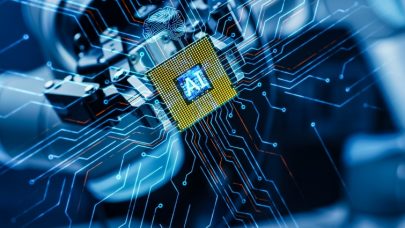Munich, Germany -- At the opening address of a conference on April 15 where a new Bavarian software plan was presented, the Bavarian Minister of Science and Research, Hans Zehetmair, expressed optimism about parallel and supercomputing developments in his country. The biggest news, however, was announcement of formation of a venture capital fund to help Bavarian software development. According to Zehetmair, the Bavarian Government is actively bolstering its technological capacity with money it has received from private firms. As an example he mentioned the Bavarian on-line concept, currently funding data networks. Sixteen pilot projects are now being funded with DM 100 million ($US 65.3 million) till 1998; another DM 200 million ($US 130.6 million) comes directly from partners involved in the projects. In Landshut, near Munich, the Bavarian State has itself founded a venture capital company that will fund new start up companies in innovative technological fields. Such start-ups need a second venture capital partner to provide matching funds and support in marketing, financial and other areas. About DM 150 million ($US 97.95 million) is available, but only DM 60 million ($US 39.2 million) can be invested in the first step. After gaining experiences in funding companies, part of the rest will be invested in different steps in the future. ANOTHER LARGE GERMAN SUPERCOMPUTER CENTER Zehetmair explicitly addressed some HPC topics, expressing optimism that another large German Supercomputer Centre, like HWW in Stuttgart, will soon be installed in Bavaria. Furthermore, he foresees investments in parallel computer installations at Bavarian Technical Universities (Fachhochschulen). The colleges should assist and support small and medium enterprises in the usage of this technology. This illustrates a new trend, also manifesting in Bavaria, that industry and research should cooperate closely for efficient transfer-of-knowledge. The conference was organized to present the results of the report Softwaretechnik on software development from the Wissenschaftlich-Technischen Beirat (WTB), the Scientific-Technical Advisory Board of the Bavarian Government. Professor Heinz Schwaerzel presented the findings. He noted that in the years 1993-1995, the Software part of the IT market showed growth of 7.2 percent and software-oriented services 6.1 percent compared to 4.7 percent total growth. Similar results have been noted for the US market. Schwaerzel commented that although software and software-related services can be counted on for production of new jobs, low-wage countries like India are becoming increasingly important as software producers. Software as a component of other technical products is another vital area receiving attention. In the report, the authors focus on telecommunication systems, traffic and automotive technology as areas of significant impact for Bavaria. In telecommunications, software accounts for 75 percent of development costs, often becoming the key factor for growth. Automobile electronics has grown from 8 percent in 1980 to a projected 30 percent by 2000. The population's increasing mobility requires new traffic control systems that are, in reality, information systems. Two Bavarian companies, Audi and BMW, are well-known for their cars, so it is important to be actively involved in software technology to improve overall competitiveness. According to the WTB report, the European market in software and software services totaled 60 billion ECU in 1994 and is shared between Germany (26 percent), France (18 percent), UK (17 percent), Italy (11 percent) and others (28 percent). Schwaerzel noted that if we count the number of software developers in different countries in 1992, America was leading with nearly 2 million, followed by India (1.4 million), China (1.1 million), Japan (1 million), Russia (0.7 million) and Germany (0.6 million). THE FAST SOCIETY A key role in strengthening the Bavarian software industry will be played by the FAST Society: the Forschungsinstitut fuer Angewandte Software-Technologien (Research Institute for Applied Software Technologies). This Society seeks to become the main information transfer vehicle between industry and the political and scientific sectors. It is slated to be funded for 10 years with a stable budget (after 3 years) of about DM 12 to 15 million ($US 7.84 to 9.8 million) per year, one third of which will come from public funding. Professor Rudolf Haggenmueller, general manager of FAST, commented: "Bavarian politics have recognized the importance of software technology and will invest in it. But actually the amount of money is not known. FAST will play the role of the independent program manager in that game." It is acknowledged that infrastructure at Bavarian universities and technical universities (Fachhochschulen) must be improved. Research and development projects with a total funding of DM 9 to 12 million ($US 5.88 to 7.8 million) per year will be initiated to accomplish this. BAVARIAN VENTURE CAPITAL COMPANY A new initiative in the industrial area has emerged for funding the foundation of new companies; it will take the form of a Bavarian Venture Capital company. Zehetmair observed that legal, financial and infrastructure conditions should be improved drastically as a result. Other steps to be taken toward these goals include: information for new managers, advice on infrastructure and on financial constraints. The start of a new secondary stock market, comparable to the American NASDAQ will be considered. This would be help attract more venture capital for innovative start-up companies. --- Material in this report was reprinted courtesy of the author and the Primeur Magazine Web site.
BAVARIA FORMS VENTURE CAPITAL FUND FOR SOFTWARE DEVELOPMENT
July 12, 1996

























































